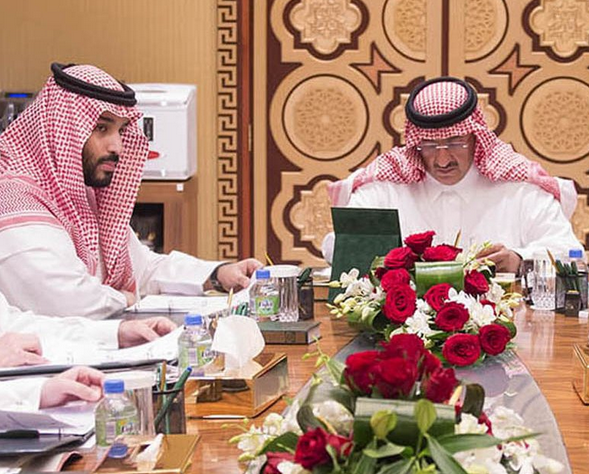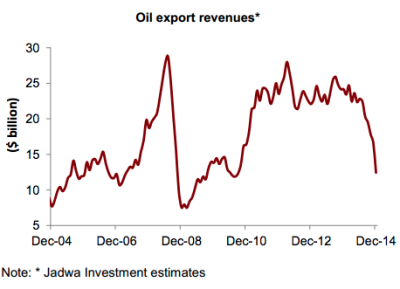When Saudi Arabia’s King Salman announced a shake-up of leadership shortly after ascending to the throne in January, one of the Kingdom’s most powerful positions – Minister of Petroleum and Natural Resources – was left unchanged. Ali Al Naimi has been Minister for 20 years, and was CEO and President of Saudi Aramco for 12 years before that.
But beneath the highest level position, more subtle changes were made that hint at a shift by King Salman, according to a report by Reuters filed today.
Rania El Gamal and Angus McDowall report that while “[t]here are no indications that those moves will lead to changes in the fundamental way the kingdom makes its oil decisions or diminish the influence of veteran oil minister Ali al-Naimi,” King Salman “is clearly laying the ground for a generational shift in how Riyadh develops its energy and economic strategies.”
The article notes that the shift is most prominently seen in the promotion of the king’s son Prince Abdulaziz bin Salman to the role of Deputy Minister of Petroleum, and the dissolution of the Supreme Petroleum Council with the Supreme Council for Economic Development, which is headed by another son of King Salman, Prince Mohammed Bin Salman, who is Minister of Defense and gatekeeper to the Saudi Royal Court.
These changes are unlikely to produce an immediate impact on Saudi oil policy, particularly with respect to output cuts with the price of oil on global indices significantly lower than they were in the Summer of 2014.
In January, writing in MEES, a Middle East oil and gas weekly magazine, Saudi finance expert Dr. John Sfakianakis confirms that the transfer of power from King Abdullah to King Salman is likely to represent a continuation of Saudi oil policy, particularly with respect to production levels. “The kingdom no doubt has made a bold bet that it can maintain its output without jeopardizing either the stability of the oil market or its own long-term economic well-being.”
Writing in Bloomberg last week, Grant Smith and Anthony Dipaola noted that strategy is paying off. “Three months after Saudi Arabia made clear it was going to let oil prices keep tumbling, the strategy is showing signs of working…the Saudi-led OPEC decision on Nov. 27 to maintain output levels and protect its market share is having the desired effect — pushing prices down so far that they threaten to curb output in the U.S. and other non-OPEC countries.”
Even though the current Minister and Saudi policy will see little change in the short term, the changes made by King Salman put into power the next generation of decision-makers that will begin to leave their mark on the future direction of the world’s largest and most consistent oil producer.










